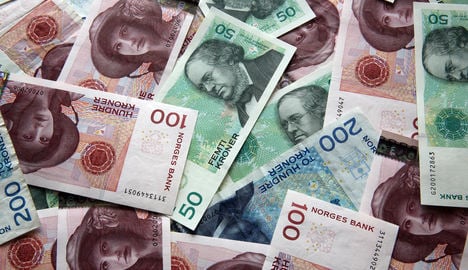TAX
Norway tax rate falls below France and Italy
Norway's tax-to-GDP ratio dropped to 42.2 percent in 2012, meaning that, despite its reputation as a high tax Scandinavian country, it now has a lower overall tax rate than both France and Italy.
Published: 16 June 2014 14:15 CEST
Norway was one of only eight out of the 30 countries surveyed by the European Union's Eurostat agency to register a fall in its tax-to-GDP ratio in figures released on Monday, with its tax burden dropping from 42.7 percent to 42.2 percent between 2011 and 2012, a bigger drop than any country except Portugal.
The highest rate of the 30 countries, which added Iceland and Norway to the 28 EU states, was reached in Norway's southern neighbour Denmark, which had a tax to GDP ratio of 48.1 percent, followed by Belgium at 45.4 percent, France on 45.0 percent, and Italy on 44 percent.
Sweden, while only fourth place in terms of the total tax burden, levied the highest tax on labour in the European Union, with the state taking 58.6 percent of wages.
Norway nonetheless came eighth, closely behind Italy and Austria.
Across the EU, the overall sum of taxes as a percentage of GDP reached 39.4 percent in 2012, although was 40.4 percent in the 18 countries using the euro currency.
The euro countries also have an average tax on labour of 38.5 percent, well ahead of Norway's total tax on labour of 36.4 percent.
Norway has seen its tax burden drop by almost a percentage point in the decade since 2002, when the ratio hovered above 43.1 percent. The tax burden is likely to drop more dramatically in 2013 and 2013, when the tax cuts brought in by the present right-wing coalition start to be felt.
Url copied to clipboard!



 Please whitelist us to continue reading.
Please whitelist us to continue reading.
Member comments